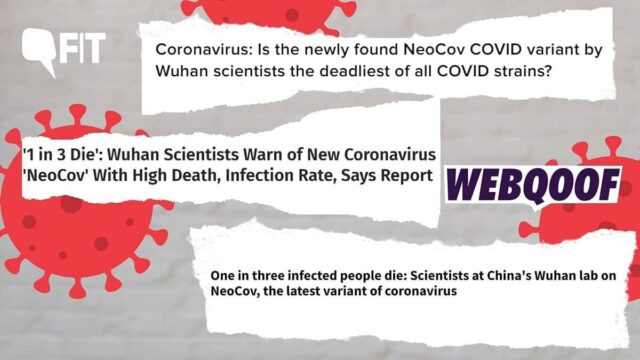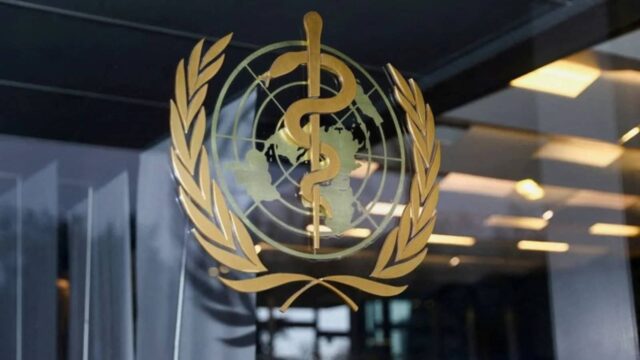In this constant state of the pandemic fueled by a virus that does not seem to be giving up on tormenting us no matter what. With a new variant being discovered almost every week it is no surprise at all that the new NeoCov variant has reared its head. However, is the variant something to be worried about?
As the world reels from the effects of the Omicron variant, NeoCov has joined the bash and according to the media channels, it is quite a dangerous one to look out for.
However, scientists have been discussing and researching about the variant and it might be that the news about the variant being deadly and dangerous is all, to quote a former famous president, fake news.
What Is The NeoCov Variant?
The warnings about the variant have come directly from China and its extremely skilled scientists. The mutation is related to the Middle East Respiratory Syndrome (MERS-Cov) which is linked to outbreaks observed in the Middle East during the periods of 2012 and 2015.
The variant has been found in the population of bats in South Africa and has been observed to spread only amongst animals yet. The warnings about the variant have been published in a study on the bioRxiv website and it is yet to be peer reviewed.
The scientists have issued clear warnings that the new variant can bind to the ACE2 receptor found in humans in an absolutely different way than the COVID-19 pathogen.
Read More: Will Omicron Prove To Be The End Of The COVID-19 Pandemic?
The new mutation can carry a combined high mortality rate of the MERS-Cov and the high transmission rate of the current SARS-CoV-2 coronavirus. A report published on the Russian website of Sputnik claims that mutation could lead to “one in three infected people dying on the average.”
The paper published on the bioRxiv website says, “Our study demonstrates the first case of ACE2 usage in MERS-related viruses, shedding light on a potential bio-safety threat of the human emergence of an ACE2 using ‘MERS-CoV-2’ with both high fatality and transmission rate.”
Should You Be Worried?
Despite the dire and immediate warnings by the scientists at Wuhan, the World Health Organization does not think that the variant is going to cause a lot of trouble. WHO has declared that the study requires further research hence, it is not sure whether the variant will ever pose a threat to humans.
The World Health Organization has further added that they work closely with the World Organization for Animal Health (OIE), the Food and Agriculture Organization (FAO) and the UN Environment Program (UNEP) in order to monitor the viruses being spread amongst wild animals and then respond to the threats.
The global body has declared, “Animals, particularly wild animals, are the source of more than 75 percent of all emerging infectious diseases in humans, many of which are caused by novel viruses. Coronaviruses are often found in animals, including in bats which have been identified as a natural reservoir of many of these viruses.”
What Should You Do?
Many variants have been emerging lately such as Florona and Deltacron. The World Health Organization has strictly declared that the variants that we should definitely be concerned about are the Alpha, Beta, Delta, Gamma and Omicron variants.
It is difficult to not get swept up into the frenzy and stress the declaration of a new variant brings forth. However, currently, our only responsibilities are to wear a mask whenever we go out, make sure we have all our vaccine doses including the booster shots if required and to not panic.
We just need to listen to what the experts say and accordingly do our duties in order to flatten the curve and reduce the spread of the variants!
Disclaimer: THIS ARTICLE IS FACT CHECKED
Image Sources: Google Images
Sources: India Today, Hindustan Times, Times Of India +more
Meet the Blogger: Charlotte
This Post is Tagged Under: pandemic, virus, new variant, NeoCov, variant, Omicron variant, media channels, scientists, variant, China, Middle East Respiratory Syndrome, MERS-Cov, Middle East, South Africa, bioRxiv website, ACE2 receptor, COVID-19 pathogen, mutation, SARS-CoV-2, coronavirus, Sputnik, viruses, Wuhan, the World Health Organization, WHO, World Organization for Animal Health, OIE, Food and Agriculture Organization, FAO, UN Environment Program, UNEP, Florona, Deltacron, Alpha, Beta, Delta, Gamma, Omicron, vaccines, vaccine
Read More:
When Will The Omicron Wave Peak In India And How Impactful Will It Be?







































